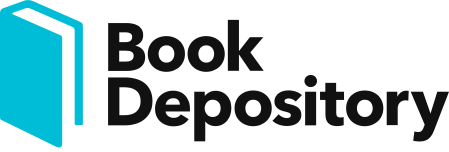About the book
LESSONS OUT OF SCHOOL
Insights against a Backdrop of the Conflicts of the Late Twentieth and Early Twenty-First Centuries
From childhood through adulthood and into old age, I have had such unexpected adventures and lessons that I have felt compelled to share them in this book, Lessons Out of School.
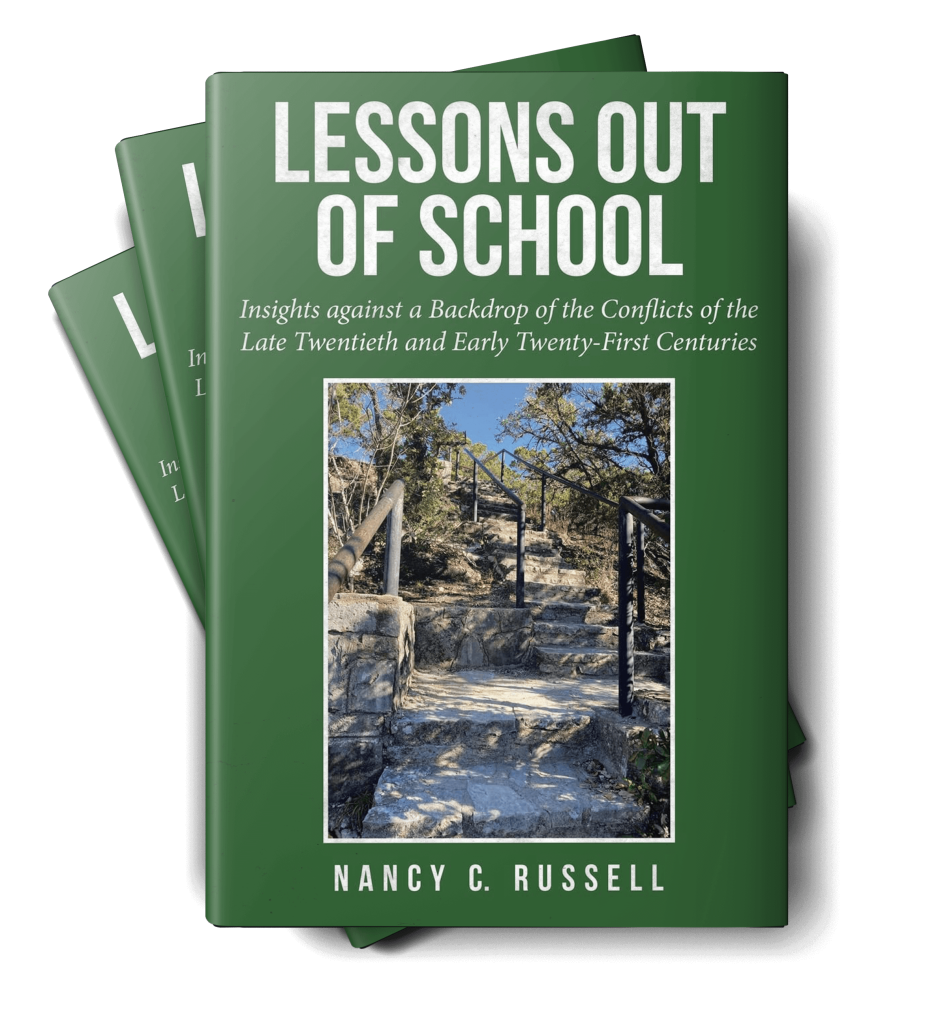
Free delivery worldwide
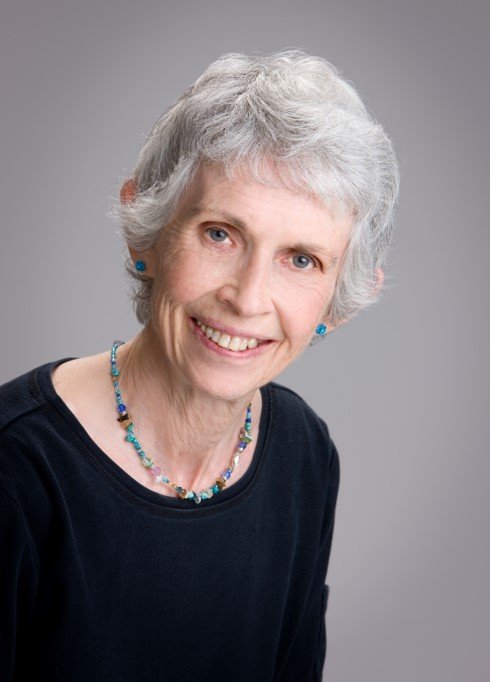
About the author
Nancy C. Russell
Nancy C. Russell, DrPH (Doctor of Public Health) is a retired epidemiologist and health educator who worked in a leading cancer center for 30 years with an interim decade as a massage therapist. Born in New York City, she has lived most of her adult life in Texas.
About the book
LESSONS OUT OF SCHOOL
Insights against a Backdrop of the Conflicts of the Late Twentieth and Early Twenty-First Centuries
From childhood through adulthood and into old age, I have had such unexpected adventures and lessons that I have felt compelled to share them in this book, Lessons Out of School.
The book begins with memories of my childhood in a suburb of New York City with World War II in the background. These memories are enhanced by my adult insights concerning the fears, division and violence in our own society at that time.
Subsequent chapters describe coming of age in the 1950s with its unexpected lessons in young love and rejection followed by motherhood, feminism, antiwar protests, and the pathways and side paths of an evolving career.
Additional chapters describe unexpected lessons in nature, basic skills, and the rewards and perils of addictions to marijuana and alcohol. Throughout the book, I’ve tried to recreate the pressures and fears of the times and follow with meaningful observations.
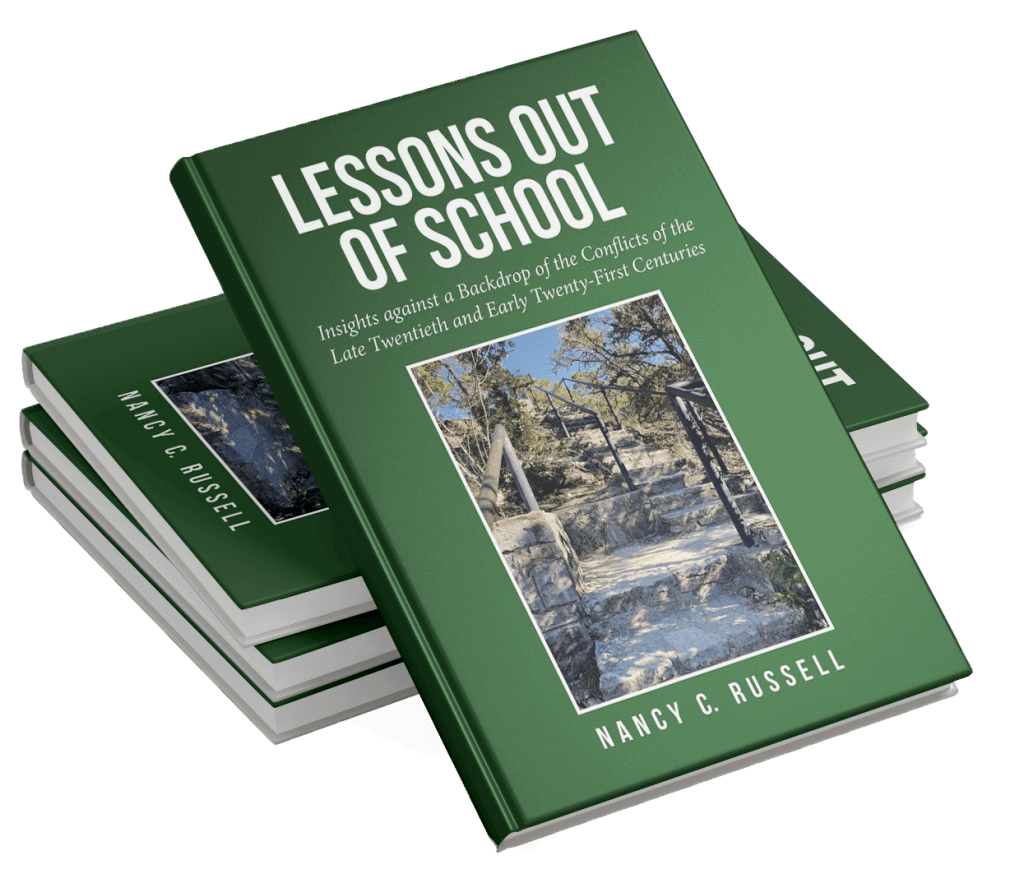

KIRKUS Book reviews
A debut volume of essays blends autobiography, social commentary, and life tips.
Growing up in the Mount Vernon suburbs of New York City during World War II, Russell recalls that close encounters with the conflict were “largely confined to newspapers and radio news.” Following this idyllic childhood came the tumultuous 1960s and ’70s, when the author’s personal life and career ambitions intersected with second-wave feminism, the civil rights movement, and the Vietnam War. These cross sections of national and personal transformations lay at the center of this book’s 35 essays, which combine stories from Russell’s life with historical events and social commentary.
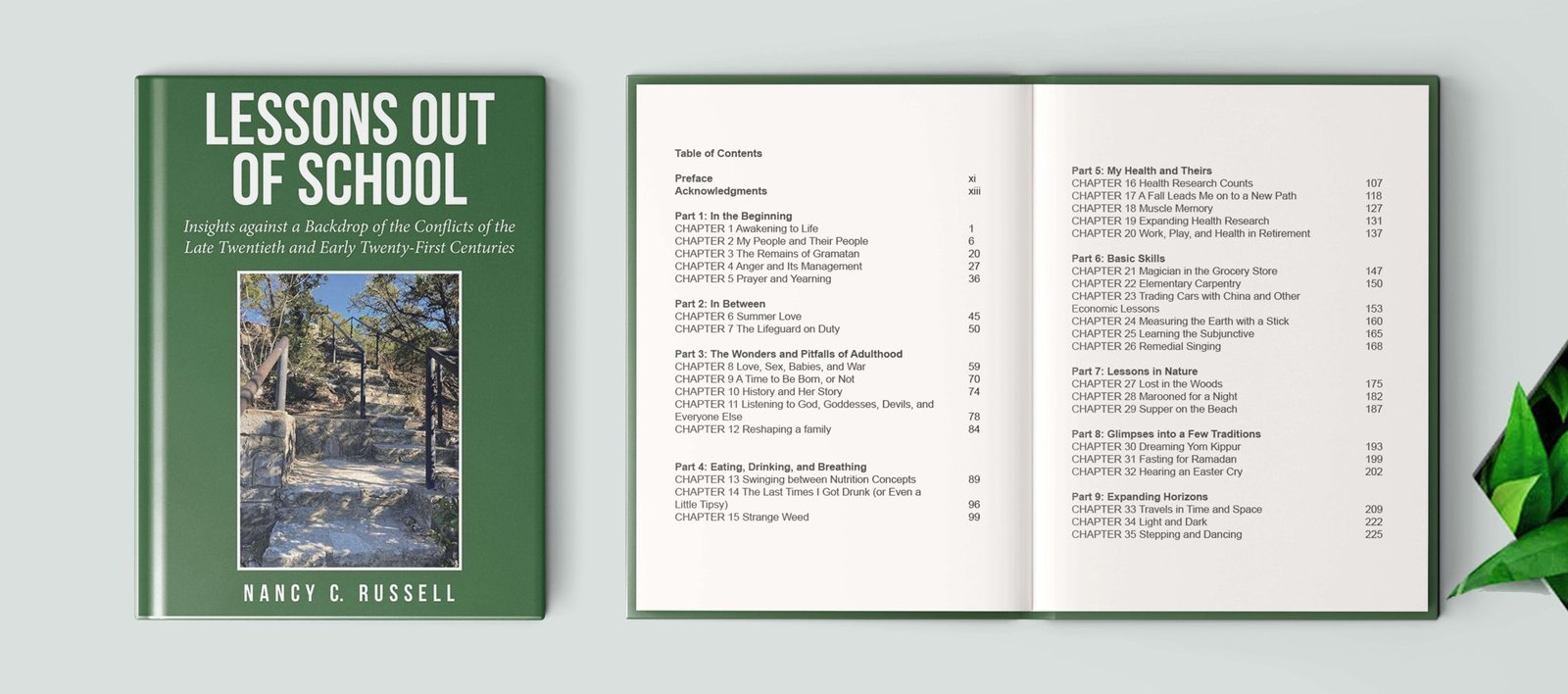
Excerpts
Chapter 4 – Anger and its Management
Summers were wonderful. They were filled with days when the other children and I could play and then eat our sandwiches, milk, and fruit out on the large lawn behind our apartment building. One summer, though, our enjoyment was marred by one little boy who insisted on throwing grass into everyone else’s milk.
One day, I had had enough, so I stood up and threw a wild punch in the direction of his face. To my amazement, it landed on his nose, which began to bleed profusely. That lucky punch had more repercussions than I could have imagined. Not only did he run home to his mother, but his mother got mad at my mother, and my mother yelled back at his mother, and the whole neighborhood talked about it. Then my mother told me his mother was a “whore.” I had no idea what that was, but I knew it wasn’t good. Bottom line: the little boy never threw grass in milk again. I concluded that the outcome was righteous justification for my lucky punch. Furthermore, my righteous anger was reinforced by the righteous anger of my own country, which was still at war in Europe. But can one-on-one bullying and righteous responses really be applied to whole societies of people?
Chapter 21 – Magician in the Grocery Store
One day while I was standing in the produce department of my local supermarket, a young man walked up and said, “Excuse me, ma’am.”
Uh-oh, I thought. He’s going to ask for money.
However, he simply held up two large cans of baby milk formula and said, “I’m trying to decide which kind of baby formula I should buy for my son. Should I buy this one with iron or this other one without iron?”
“Well,” I said, “what kind does your wife usually buy?”
“Oh, my wife left, and she’s doing whatever she’s doing, and I’m just trying to raise my son by myself. He was born premature, but he’s doing better; I just want to help him grow and be strong.”
“Aw,” I said. “That’s tough. What does his doctor or nurse say?”
“Oh, that clinic is on the other side of town; it’s too far and too hard to get an appointment.”
“Well,” I said, “iron can cause digestive problems, so I wouldn’t buy any with iron unless a doctor suggests it. Is your son eating any solid foods yet?”
“No, he’s just drinking milk.”
“Really?” I said. “How old is he?”
“He’s a year old.”
“Oh,” I said, “he should be eating some solid foods by now. You could give him some plain cooked cereal, and if he handles that, you could then give him some cereal with iron. Again, though, I wouldn’t do that unless a doctor or nurse suggests it.”
“Oh,” he said, “that’s a good idea. Thank you so much; you’ve really been helpful.”
His cell phone rang, and he turned and left. I continued my shopping, pleased that I had been able to use my knowledge of public health and experience as a mother to help someone.
He must have been a magician, though, because when I opened my purse at the checkout stand, my wallet had disappeared. In the next forty-five minutes, he and his accomplice, who had apparently done the actual lifting of the wallet, spent $500 on new tires, a battery, assorted items from Target, and even coffee from Starbucks.
Learning how to avoid being conned is an important basic skill. Lesson number one is to slow down, pay attention, and not swallow everything from a stranger before sharing your brilliant knowledge.
Lesson number two. Be more suspicious when someone says something that doesn’t make sense, such as a story about a one-year-old child who isn’t eating solid food.
Lesson number three. Keep the contact information for your bank and credit card company in your cell phone or at least separate from your wallet to avoid wasting valuable time searching for them when reporting the theft or loss.
Contact us
Hello there! Thank you so much for taking the time to visit my website. I would love to hear your thoughts regarding my book. If you haven’t had a chance to read the book yet, I still want to hear anything from you. Leave a message!



